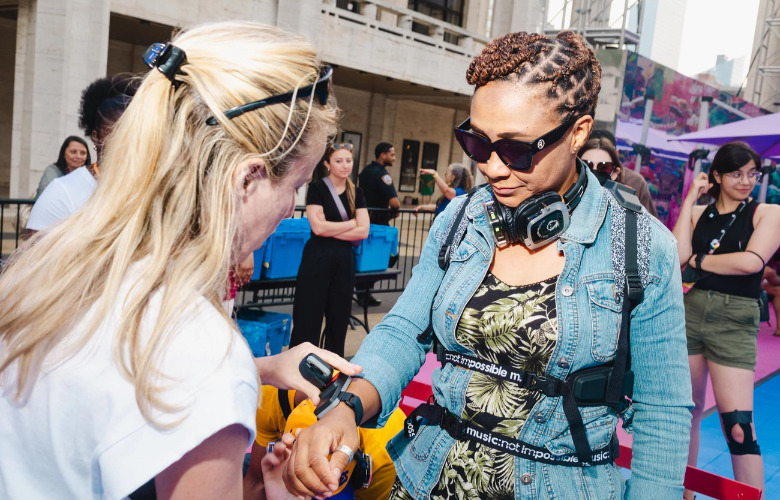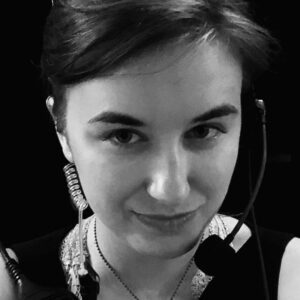
With all the recent talks about technology and how it is hurting so much of the music industry, it is finally great to hear about something that is using technology to help the industry and those who have a more difficult time listening to its products. Haptic suits that were specially designed for the deaf community were provided by Music: Not Impossible. Music: Not Impossible is an off-shoot of Not Impossible Labs who use technology to undertake social issues.
The technology took over a year before the company was happy with the results. Not Impossible Labs worked with Avnet to establish a light haptic suit of 24 vibrating plates so the body can literally feel the music. Twenty of the vibrating plates are studded on a vest that conforms around the chest of the person wearing it, similar to a harness or backpack. The other vibrating plates strap around the wrists and ankles. Due to the different vibrations, the trembling texture of the suit allows the wearer to feel a variety of music’s capabilities.
“It doesn’t replicate the music- it’s not as simple as regular taps to the beat. It plays waves of sensation on your skin in a way that’s complementary to the music.”
The suit was demonstrated to the public at the Lincoln Center for the Performing Arts at an event called “Silent Disco: An Evening of Access Magic”. Anyone who attended the event could borrow one, whether the person was hearing, deaf, or hard of hearing. In total, there were 75 suits that evening. The suits were mixed with the music by the DJ control booth. The DJ was able to adjust the frequency, intensity, and the different parts of the body the vibrations were going to. Luckily, the DJ was the co-founder of Music: Not Impossible, Paddy Hanlon, so he had experience with mixing the music with the suits.
These suits had a perfect debut spot, as the Lincoln Center was celebrating Disability Pride Month. Along with the premiere of the haptic suits, there were American Sign Language interpreters, the music was captioned on screen on stage, and audio description was available for those who attended who were blind or visually impaired.
When attendees who tried the suits were asked about their experience with the new haptic suits, many had great responses. For those who are a part of the deaf community, it is essential that they get to experience the arts in all the ways that it can offer. With this new technology, this allows for everyone to experience new levels of music and the possibility to expand this technology to hopefully become widely accessible. This applied science could eventually allow everyone to come to festivals, theatres, clubs, etc. with no issue or hassle.
“This is a chance for us to be together and experience access that’s integrated into a party artistically and not as a compliance thing. Someone can come to a place where disability is expected, and disability is loved.”
Kevin Gotkin, the curator of disability artistry events at Lincoln Center.


Janine has always been a part of music and performing. The first show that inspired her to go into theatre was the Velveteen Rabbit which she saw as a child, and Drew works to keep that magic alive in her work. When Drew was accepted into an internship program for audio engineering at a recording studio, she jumped at the opportunity. That was at the start of 2020, and so much has happened since then, both in her career and in the world. Since then, Drew has taken several opportunities to work at recording studios, concerts, festivals, and even large theatres while spending some time on tour. Drew's favorite by far though, has been the chance to work on Broadways and West End shows, as this was a dream come true. Drew is honoured to get to share these experiences from being inside the entertainment industry.
Read Full Profile© 2021 TheatreArtLife. All rights reserved.

Thank you so much for reading, but you have now reached your free article limit for this month.
Our contributors are currently writing more articles for you to enjoy.
To keep reading, all you have to do is become a subscriber and then you can read unlimited articles anytime.
Your investment will help us continue to ignite connections across the globe in live entertainment and build this community for industry professionals.